Sudan
Zeinab was trying to flee war-torn Khartoum in order to seek safety. But paramilitary fighters she met didn't let her nor women embarking on the same journey escape unharmed.
In mid-May, one month after fighting broke between Sudan's army chief and his deputy (head of the paramilitary group RSF) Zeinab says, herself, her sister and other women who were fleeing Khartoum in a minibus were raped.
The vehicle transporting them was stopped at an RSF checkpoint. There, fighters separated the female from male passengers.
Terrified, they were marched into a warehouse where a man "in civilian clothes who seemed to be their commander" ordered Zeinab to the ground.
The woman tried to hide her younger sister, in vain. As she attempted to resist she was soon obliged to give up, she recounted her ordeal from another country where she found refuge.
"I was pinned down" one man pointing a rifle to her chest "while the other raped me," Zeinab told AFP. "When he was done, they switched. They wanted to keep my sister with them. I begged them on my hands and knees to let her go."
"I was sure we were about to die," she told AFP, revealing, her younger sister and two other women, one with an infant daughter, were all raped.
Rape, a weapon of war
Dozens of women have reported similar attacks — in their homes, by the roadside and in commandeered hotels — since the war erupted in mid-April between the army and the paramilitary Rapid Support Forces.
Zeinab and the other women raped on that fateful day were eventually allowed to leave and escaped to Madani, 200 kilometers away, where they reported the attack to police and went to a hospital.
"We're not the first people this has happened to, or the last," she said.
Sudan's war has claimed at least 1,800 lives and displaced more than 1.5 million people.
The horrors of the conflict have been compounded by a wave of sexual violence, say survivors, medics and activists who spoke to AFP.
Most have requested anonymity or, like Zeinab, used a pseudonym for fear of reprisals against them and others.
Both Sudan's army chief, General Abdel-Fattah Burhan, and the RSF, led by General Mohamed Hamdan Dagalo, have accused their enemies of such attacks.
And human rights lawyer Jehanne Henry said that indeed both sides have committed "notorious acts of sexual violence" in the past.
The governmental Combating Violence Against Women and Children Unit documented 49 assaults in the first two weeks of the war.
In all but six cases, survivors identified perpetrators "in RSF uniform," said unit chief Sulaima Ishaq al-Khalifa, adding that there are "new reports night and day."
No woman is safe
"There is not a single woman in Khartoum now who feels safe, not even in her own home,” al-Khalifa said.
The worst fighting has raged in Khartoum and the Darfur region, where former autocratic leader Omar al-Bashir once unleashed the notorious Janjaweed militia from which the RSF emerged.
In their scorched-earth campaign since 2003, they committed genocide, war crimes and crimes against humanity, including rape, according to the International Criminal Court.
Now mass rapes are again being reported in Darfur, said Adjaratou Ndiaye, the U.N. Women representative in Sudan.
Documented cases, like wider casualty counts, are likely "the tip of the iceberg," said a Sudanese Women Rights Action group researcher.
Medics say many victims receive no care as hospitals have been ransacked or destroyed.
Many cases have been reported by civil society groups known as resistance committees, which long campaigned for democracy.
A lawyer who has long documented sexual assaults by security forces, said the scourge now impacts "every segment of Sudanese society."
"We have seen the rape of young girls and old women, mothers with their children," she said, adding that to the perpetrators "it doesn't matter."
Amid dire shortages, health workers have struggled to provide HIV medication or emergency contraceptives.
"The situation is catastrophic," said a member of the Central Committee of Sudanese Pharmacists.
Activists and medics are trying to document every attack. The aim, said the lawyer, is "to ensure there is no impunity."
Zeinab hopes the rapists will one day face justice but voices resignation.
"I shared my testimony to try and stop this happening to others, to tell them the road isn't safe," she said. "But even when I filed the police report, I knew nothing would come of it. They're never going to get the men who did this."



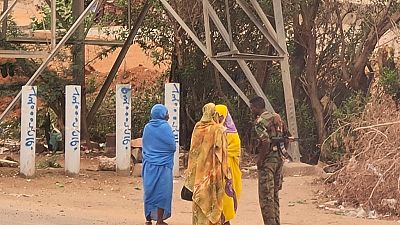


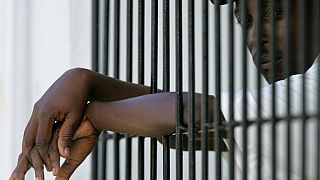
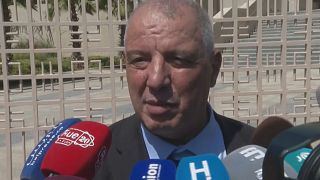
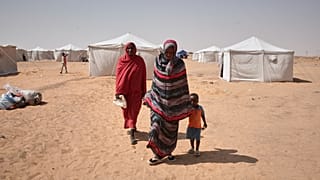
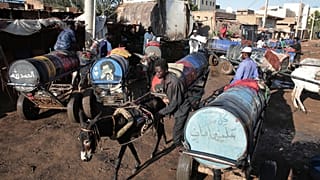
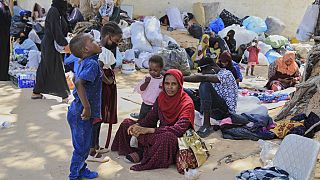
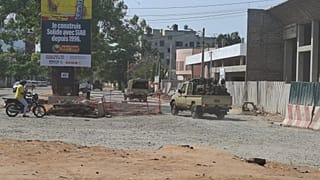
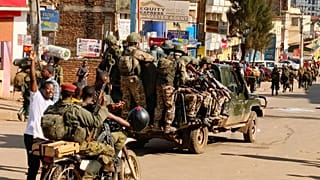
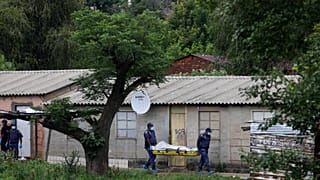
01:24
Landmine deaths surge worldwide amid UN demining funding cut
Go to video
Kenyan MPs accuse British troops of sexual abuse and environmental harm
01:55
Sudan’s humanitarian crisis deepens as famine spreads and aid funding falls
01:10
ICC hears closing arguments in suspected CAR militia leader case
01:18
World marks International Day for the Elimination of Violence against Women and Girls
Go to video
Amnesty: RSF committed war crimes in Sudan’s Darfur